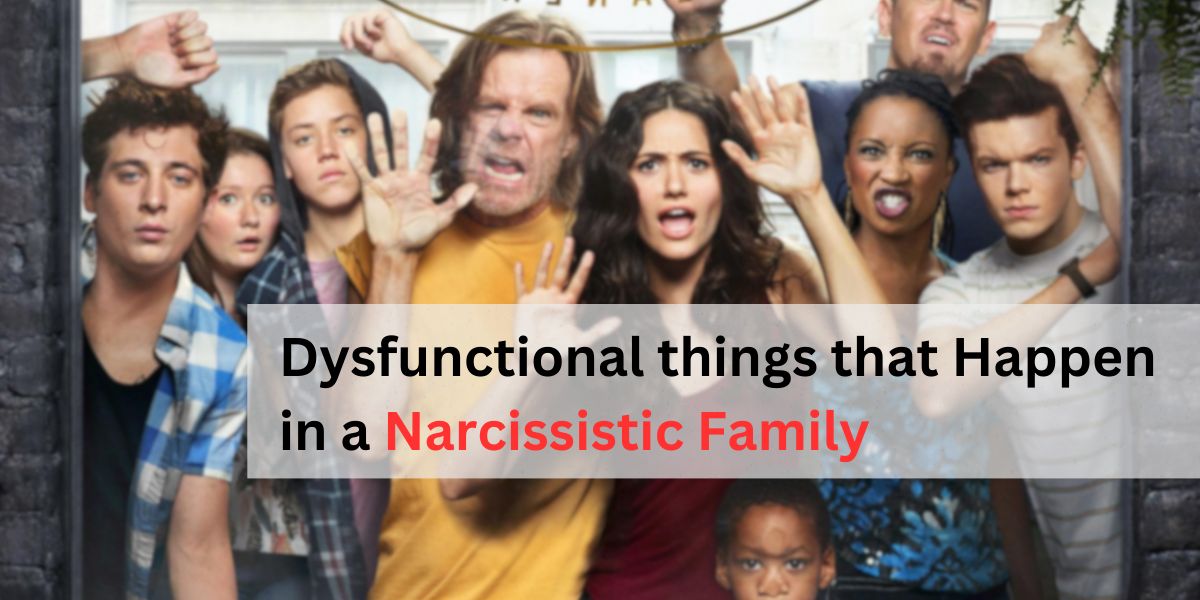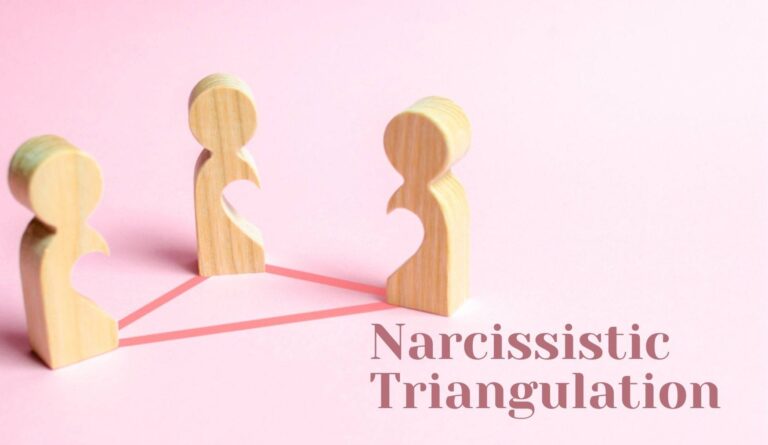11 Dysfunctional Things in a Narcissistic Family
Picture a family where one or more member dominates and controls everyone else, using emotional abuse, manipulation, and gaslighting tactics to maintain power and control. This is the reality for many individuals raised in a dysfunctional narcissistic family. Just think about how a child grows under such circumstances.
Children of narcissistic parents may be subjected to emotional abuse, neglect, or even physical abuse. They may also be held to unrealistic standards or made to feel responsible for the emotional well-being of their parent. In this article, we will explore some of the key facts about narcissistic families.
Why Narcissistic Families are toxic?
Narcissistic families tend to be toxic because they are built around the narcissist’s need for control, validation, and admiration. This results in a family dynamic dysfunctional and may engage in a variety of abusive or neglectful behaviors, while other family members may become enablers or codependents, perpetuating the toxic cycle.
This can lead to long-lasting emotional scars and a sense of isolation and powerlessness for those trapped in the narcissistic family system.
Before getting into the article, we want you to know this platform is created with the motive that you can vent out your emotions through the comment section of the articles you relate to. You can either comment and respond to the people you relate to and also register with Udante if you want to have a private and friendly conversation with us for free.
Dysfunctionalities in a Narcissistic Family
Dysfunctionalities in a narcissistic family can include emotional abuse, manipulation, and a lack of healthy boundaries affecting the family members. The resulting family environment is often marked by a lack of trust, emotional instability, and a sense of isolation and powerlessness for those trapped in the system.
The dysfunction in narcissistic families can have a profound impact on the well-being of everyone involved, perpetuating cycles of trauma and abuse across generations. The followings are some of the common and too impacting dysfunctionalities in a narcissistic family.
Lack of emotional bonding
Narcissistic families are characterized by a lack of emotional bonding, empathy, and genuine concern for one another. Members of these families often feel isolated and alone.
Furthermore, narcissistic parents may treat their children as extensions of themselves rather than as individuals with their own thoughts, feelings, and desires. This leaves children feeling unseen, unheard, and unimportant, leading to issues with self-worth and self-esteem.
Overall, a lack of emotional bonding in narcissistic families leads to long-term impacts on children’s mental health and well-being, and it affects their ability to form healthy relationships in the future.
Focus on maintaining the family image
The primary focus in narcissistic families is on Maintaining the family image. It is important for narcissists to increase their own sense of self-worth, protect themselves from shame and criticism, and control how others perceive them and their families. Some of their actions on their families are
Have a burning desire for admiration and validation from others. They may receive the admiration and validation they strive for by projecting a positive image of their family to the outside world
Often the fear of being seen as flawed or imperfect triggers feelings of shame and insecurity. By presenting a perfect image of their family, they avoid feeling shame or embarrassment.
By maintaining the family image, they have strong control over how others perceive them and their family, as well as ensure that family members behave in ways that reflect well on the family.
Make members of the family present a facade of perfection to the outside world, even if things are far from perfect at home.
Children are seen as extensions of the parent
Children in narcissistic families are usually understood as extensions of their parents. Narcissistic parents see their children as a means of validating their own self-worth and meeting their own needs for attention, admiration, or control. They expect their children to excel in areas that they value or their unfulfilled dreams and aspirations.
This leads to a child choosing to believe that they are only valued for what they can do or achieve, rather than for who they are as individuals. They may feel pressured to meet their parents’ expectations, regardless of their own interests, needs, or desires.
As a result, children in narcissistic families may struggle with developing a healthy sense of self and may experience feelings of shame, guilt, or unworthiness.
Children are objectified
In narcissistic families, children are often objectified by their parents or other family members. Objectification is when a person is treated as an object or a thing, rather than as an individual with feelings, needs, and desires.
The child’s own desires, feelings, and needs may be ignored or dismissed. This incredibly damages a child’s emotional and psychological well-being.
In some cases, narcissistic parents may sexualize or treat their children inappropriately. Making sexual comments or jokes, exposing their children to sexual content, or even engaging in sexual behavior with their children are all examples of this. For a child, this type of objectification can be extremely damaging and traumatic which can even lead to PTSD due to narcissists.
Emotional manipulation, gaslighting, and guilt
Narcissistic family members may use emotional manipulation tactics such as guilt-tripping, shaming, or threatening to control and manipulate the emotions and behaviors of their family members, leaving the victims feeling powerless and confused.
The narcissists may use gaslighting to actively distort or deny reality to make their family members doubt their own perceptions and experiences, which can lead to the victim feeling confused, anxious, and doubting their own sanity.
Narcissistic individuals may use guilt to manipulate and control their family members, making them feel responsible for the narcissist’s emotions or actions, leading to constant feelings of burden and responsibility, even when the victim has done nothing wrong.
Punishment for expressing opinions, emotions, or desires
It is not uncommon for family members to be punished or face negative consequences for expressing their opinions, emotions, or desires.
Using tactics such as silencing, shaming, or ridiculing, leads the victim to feel invalidated, unsupported, and emotionally isolated.
Withdraw affection or support when a family member expresses their opinions, emotions, or desires that do not align with the narcissist’s beliefs or goals. This creates a sense of emotional instability and unpredictability for the victim
Threatening to withdraw financial support or access to resources, leads the victim to feel trapped and powerless.
Golden child/scapegoat dynamic
Narcissistic parents may display a “golden child/scapegoat” dynamic, where one child is favored and the other is constantly criticized and belittled. Few examples are
The golden child is often favored by the narcissistic parent, receiving praise and special treatment, while the scapegoat is often criticized, blamed, and excluded.
The favorable child is idealized by the narcissistic parent, while the scapegoat is devalued and seen as flawed or defective.
The golden child is often overly involved with the parent’s needs and wants, while the scapegoat may be emotionally detached or pushed away.
This kind of behavior creates a toxic sibling relationship and causes the scapegoat child to feel like they are constantly falling short.
Emphasis on appearances and possessions
Places a strong emphasis on appearances, including how the family appears to others and how individual family members present themselves. This creates pressure on family members to present a certain image or maintain a certain standard of appearance.
Possessions are often valued over personal connections and relationships. Family members are judged or criticized based on their possessions and perceived wealth or status, rather than on their character or personal qualities.
Narcissistic individuals often focus on managing their image and public perception, which can lead to a sense of emotional distance or a lack of authenticity within the family.
Dysfunctional patterns across generations
Narcissistic families may have a pattern of repeating dysfunctional behaviors and unhealthy relationship dynamics across generations. Children of narcissistic parents may grow up to become narcissistic themselves or to be drawn to narcissistic partners.
One common pattern in narcissistic families is the “scapegoat” and “golden child” dynamic. The narcissistic parent may designate one child as the “golden child,” who can do no wrong and receives all the attention and praise, while the other child is labeled the “scapegoat” and is blamed for all the family’s problems.
Another dysfunctional pattern in narcissistic families is emotional neglect or abuse. Narcissistic parents may prioritize their own needs and desires above their children’s emotional well-being, leading to emotional neglect or even emotional abuse.
Difficulty with Boundaries
Children who grow up in narcissistic families frequently struggle with setting and maintaining boundaries. They may feel guilty for expressing their own needs or desires, and they may believe that they must always prioritize the needs of others, particularly their narcissistic parents.
This can have a long-term impact on a child’s emotional and psychological well-being. Children who lack a clear sense of boundaries may struggle to develop a healthy sense of self and may struggle in future relationships. They may also be exploited or mistreated by others who pinpoint their lack of boundaries.
Secrecy and Denial
Narcissistic families may prioritize loyalty to the family above all else, leading to a culture of secrecy and denial around abusive behaviors.
In conclusion, growing up in a narcissistic family can have a profound impact on an individual’s emotional well-being and ability to form healthy relationships in adulthood. It is important for individuals who have experienced narcissistic abuse to seek support and healing from trained professionals.






